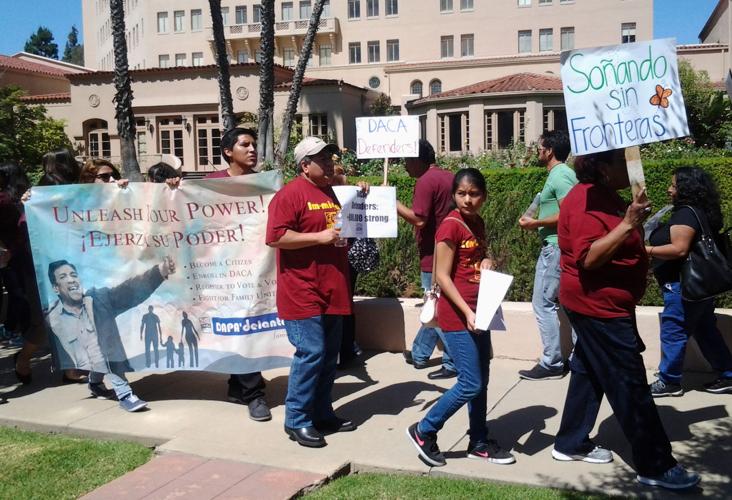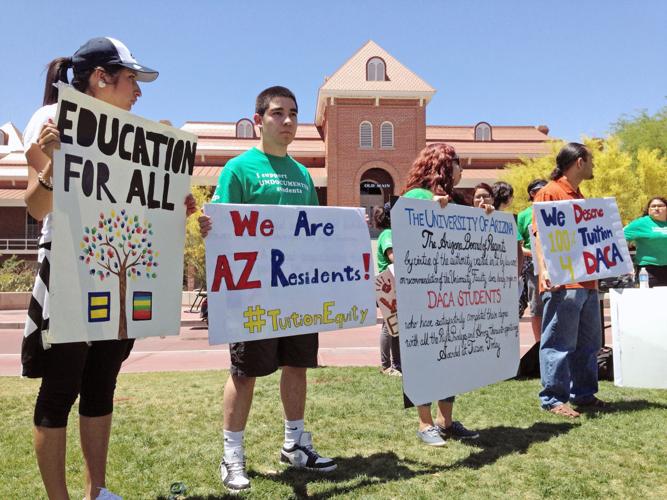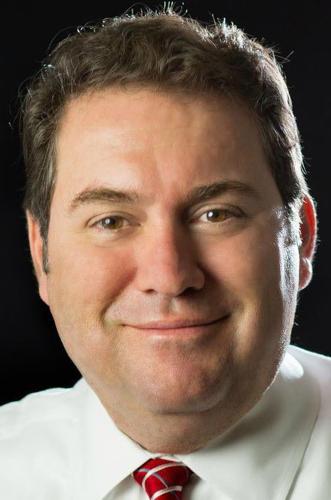PHOENIX — Hoping to avoid another court hearing — and potentially another loss — Arizona Attorney General Mark Brnovich wants federal judges to delay deciding whether to permanently give driver’s licenses to “dreamers,” or undocumented immigrants brought to the U.S. as children.
In a letter to the 9th U.S. Circuit Court of Appeals, Assistant Attorney General Dominic Draye points out that the U.S. Supreme Court last week agreed to hear a challenge to the authority of President Obama to allow some illegal immigrants to remain in the United States. That relates to a program known as Deferred Action for Parents of Americans, aimed at the parents of children who are in this country legally.
The justices said they want to hear arguments over whether DAPA violates the constitutional requirement that the president ensure “the laws be faithfully executed.”
What Draye contends on Brnovich’s behalf is that if the justices conclude that Obama had no authority to enact DAPA, then the Deferred Action for Childhood Arrivals program also disappears. And if there is no DACA program, there are no dreamers — and no one to contend they are legally entitled to drive in Arizona.
But Jennifer Chang Newell, an attorney with the American Civil Liberties Union, said there’s no basis for a delay.
She pointed out that challengers already have convinced a federal judge in Phoenix to permanently enjoin Arizona from denying licenses to “dreamers.” It is that ruling that Draye and Brnovich have previously asked the 9th Circuit to overturn — and now want the judges to delay.
But Newell is confident the 9th Circuit, which already upheld a preliminary injunction, will reach a similar conclusion again.
She also dismissed Draye’s claim that a Supreme Court ruling against Obama in the DAPA case, expected by June, would automatically affect the rights of dreamers to drive in Arizona.
Newell said the issues in the Arizona case are different than those before the Supreme Court. In fact, she argues that Arizona would continue to have to issue licenses to dreamers even if the high court declared the DAPA program illegal.
“We have a different program with a different record,” Newell said.
Hanging in the balance are licenses that already have been issued to 17,344 DACA recipients in Arizona.
Obama unveiled DACA in 2012. It says that individuals brought to this country illegally as children would be allowed to remain if they met certain other conditions. Those who qualify also would be issued permits to work legally.
But just days before the Department of Homeland Security began taking applications, then-Gov. Jan Brewer issued an executive order directing the Department of Transportation not to issue licenses to DACA recipients.
She cited a 1996 Arizona law that says licenses are available only to those whose presence in this country is “authorized by federal law.” Brewer argued the federal agency has no legal authority to permit them to remain or work, meaning they were not “authorized” to be here.
U.S. District Court Judge David Campbell rejected those arguments, pointing out that Arizona has historically given licenses to thousands of other illegal residents who were given similar administrative permission to stay. That, he said, makes denying the DACA recipients is a violation of the Equal Protection Clause of the U.S. Constitution.
“The court is not saying that the Constitution requires the state of Arizona to grant driver’s licenses to all noncitizens,” Campbell wrote. “But if the state chooses to confer licenses on some individuals who have been temporarily authorized to stay by the federal government, it may not deny them to similarly situated individuals without a rational basis for the distinction.”
It is that ruling the state at first appealed and now wants delayed.
Newell said there’s no basis to postpone the appeal.
She said Campbell’s ruling never touched on the question of whether DACA is within the president’s power. Instead, it relies on whether Arizona can pick and choose who it determines is “authorized” to be in the state.
Newell said, though, there is no immediate danger to DACA recipients if Brnovich gets the delay he wants. That’s because the state will continue to be required to issue licenses to applicants who otherwise qualify unless and until the 9th Circuit weighs in.
At last count more than 28,000 Arizona residents had qualified for DACA.







